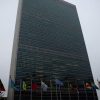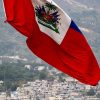
Haitian lives matter. They offer a wider global measuring stick and lens through which to view the global immigration and human rights crises of our time. The world’s immigration crisis finds European xenophobia increasing at the same time that anti-immigration sentiment flourishes in the U.S. and other parts of the world. Haitian immigrants and their descendants in the Dominican Republic are the faces at the bottom of this global well, once again serving as the canaries in the coal mine of an unfolding international catastrophe.
The Dominican Republic’s ongoing efforts to forcibly expel hundreds of thousands of residents of Haitian descent, many of whom were born there, constitutes a global human rights crisis that civil rights activists should be supporting at all costs. While, so far, no official deportation date has been set, government officials have made extensive preparations to repatriate thousands of these people.
Already, tens of thousands of Dominican residents of Haitian descent, mostly poor and working-class laborers, have fled the Dominican Republic since the government demanded that all of the D.R.’s almost half a million undocumented workers register by the arbitrary June 17 deadline. Although more than two-thirds did so successfully, only a tiny 2 percent have been granted legal status.
Anti-Haitian sentiment in the Dominican Republic inspired a constitutional change that stripped citizenship from thousands of Dominicans of Haitian descent, who routinely experience racism and economic exploitation. They have entered into a political limbo on top of already rampant human rights abuses that have seen innocent Haitian immigrants bullied, beaten and, in certain instances, killed as a result of a political climate that blames hardworking dark-skinned laborers for crime, unemployment and poverty.
This is especially ironic because Haitian immigrants routinely do the harsh, dangerous and stigmatized grunt work that Dominican citizens themselves are unwilling to do. In this sense, the status of residents of Haitian descent in the D.R. resembles that of Mexican immigrants in the U.S. Yet Haitian immigrants are not granted the measure of protection afforded to undocumented workers in America. Instead, politicians utilize their very presence to stoke fear, violence and anger in the population even as they take advantage of the crucial role Haitian immigrants and their descendants play in strengthening the Dominican Republic’s economy.
In the U.S., civil and human rights activists, including Massachusetts’ Democratic Haitian-American state Sen. Linda Dorcena Forry, have encouraged American tourists to curtail travel to the popular resort destination. Similarly, the editorial pages of major newspapers have called on the Dominican Republic to reconsider its policies on Haitian immigrants.
But much more must be done.
Haiti’s successful 1804 revolution against the French Empire transformed a colony of slaves into a republic of citizens. In so doing, it turned Toussaint L’Ouverture and Jean-Jacques Dessalines into revolutionary icons who inspired the radical impulses of Frederick Douglass and generations of black Americans, during and after slavery, who looked to Haiti as a beacon of freedom in the Western Hemisphere.
Haitians have paid a heavy price for defying white supremacy, slave masters and the dictates of Western imperialism. The U.S. government refused to recognize Haitians as fellow revolutionaries, instead posing as an existential external threat that culminated in a brutal occupation between 1915 and 1934. The shared border between Haitians and Dominicans, meanwhile, posed an internal threat, one that culminated in disputes that frequently spilled over into bloodshed.
The international community rallied around Haiti in the aftermath of the devastating 2010 earthquake, with $13 billion in aid pledged. Millions of Haitians have yet to experience the infrastructure renewal and economic stability that such aid seemed to promise.
Now Haitians face a new catastrophe, one that reflects not only a larger global immigration debate but also a human rights crisis that connects the plight of dark-skinned Dominican residents of Haitian descent with their brown-skinned sisters and brothers in the U.S. who have proclaimed that black lives matter loud enough for the world to hear.
Peniel E. Joseph, a contributing editor at The Root, is founding director of the Center for the Study of Race and Democracy and a professor of history at Tufts University. He is the author of Waiting ’Til the Midnight Hour: A Narrative History of Black Power in America, Dark Days, Bright Nights: From Black Power to Barack Obama and Stokely: A Life. Follow him on Twitter.














